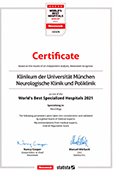About the disease
Meningitis is a disease, during which meninges, which are membranes covering the brain and spinal cord, become inflamed. Most often meningitis develops when the fluid, which surrounds the meninges, becomes infected. In 80% meningitis is caused by viral and bacterial infections, which at first are manifested by simple cold or flu. In other cases, meningitis can develop as a result of cancer and certain drug allergies, which irritate the meninges in the brain and cause inflammation. In rare cases meningitis can be caused by fungus infection and HIV. People who had measles or influenza are also in the risk group. There are two types of meningitis: viral and bacterial. They are both contagious, meaning that they can be easily transmitted by air during close contact between infected and healthy persons. Viral meningitis is more widespread than bacterial and it is more contagious. Nonetheless, bacterial meningitis is more dangerous with 25% on average dying from this condition if not treated on time. Overall, meningitis is a very common disease affecting approximately 10 million people each year. It needs to be treated immediately once found in order to avoid such complications as hearing loss and brain damage. People with immune deficiency and pregnant women should always beware of the risk of meningitis, as it can be very dangerous for this group of people.
Symptoms
- Fever
- Stiffness in the neck
- Headache
- Nausea
- Sleepiness
- Decreased appetite
Diagnosis
- During general examination doctor will determine if a person has stiff neck and fever, which are the first indicators on meningitis.
- Lumbar puncture test is also commonly used as it can show if there is inflammation in the spinal fluid.
- CT scan of the brain is used to check if the anatomic structure of the brain was not damaged.
- Blood count can show if there is increased amount of white blood cells, which is an indicator that the body fights an infection.
Treatment
Conservative treatment is the most commonly used treatment option for meningitis. Treatment depends on the type of meningitis. Bacterial meningitis needs to be treated by intravenous antibiotics, which can block the bacteria, that cause inflammation in the meninges. For viral meningitis doctors also use special anti- inflammatory drugs, but in most cases this type of meningitis needs to be resolved on its own. Nonetheless, a patient has to be under observation of the doctor to ensure speedy recovery. After treatment a patient needs to regularly visit the GP to avoid complications, which could affect ears, brain and overall health condition of a person.
If started early, treatment is in most cases successful and with no further complications.
Authors: Dr. Vadim Zhiliuk, Dr. Sergey Pashchenko




















